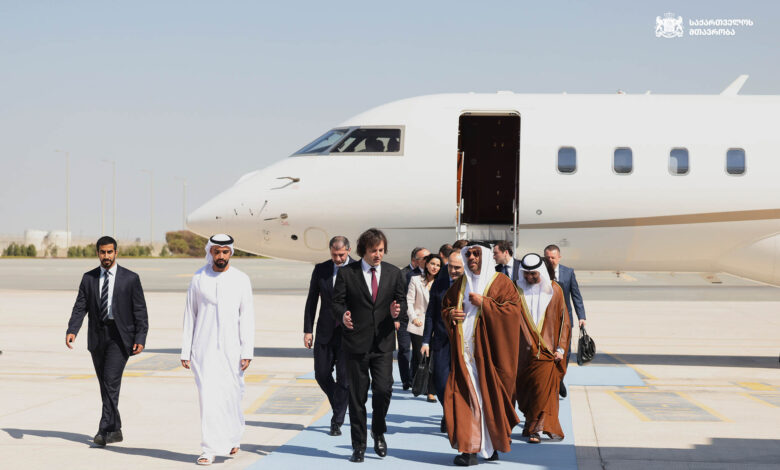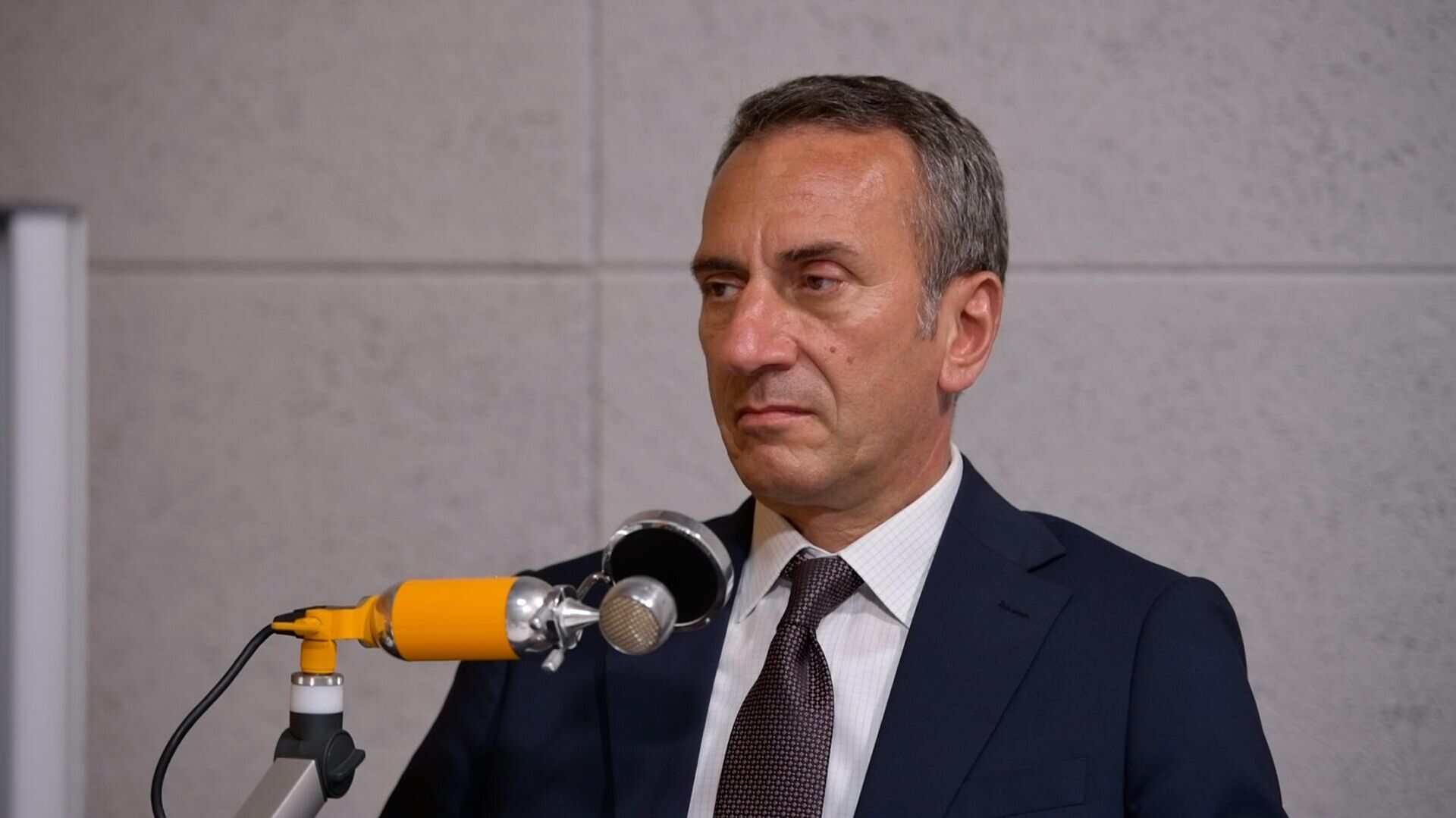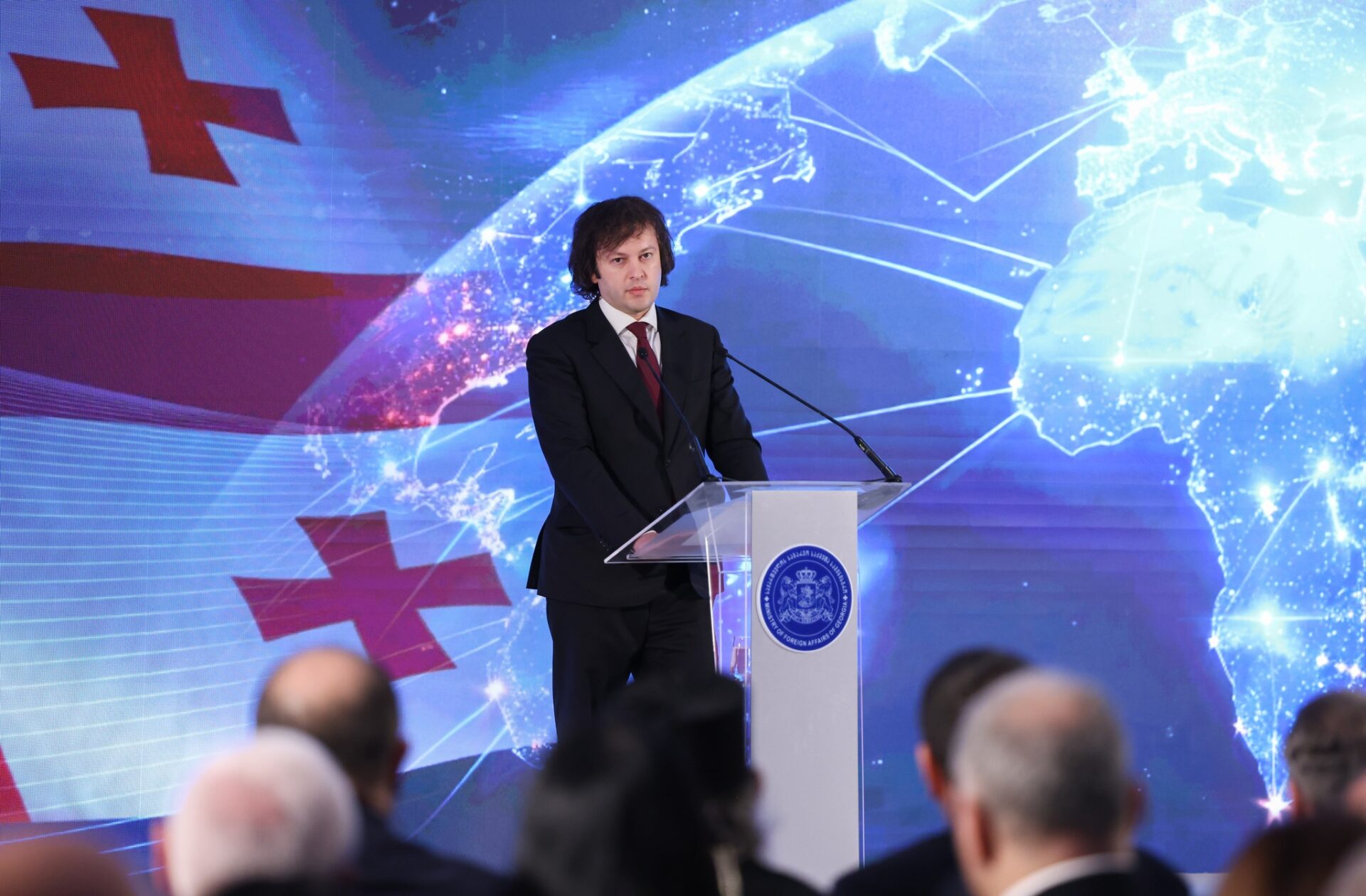
Georgia Shifts Eastward Amid Strained Western Ties
Georgia Shifts Eastward Amid Strained Western Ties
Executive Summary:
- Georgia is increasingly turning toward the People’s Republic of China (PRC), Iran, and the United Arab Emirates, marking a sharp shift away from its traditional Western allies.
- Economic ties with these countries have intensified, bringing increased investment, business activity, tourism, and even cultural exchange.
- This pivot may deepen Georgia’s dependence on authoritarian regimes while amplifying Russia’s influence in the region.
On May 10, in an exclusive interview with the Georgian pro-government broadcaster TV Imedi, People’s Republic of China (PRC) Ambassador Zhou Qian announced that PRC investment in Georgia had surpassed $1.3 billion, making it the top PRC investment destination in the South Caucasus (Imedinews, May 10). Just days later, on May 22, Transparency International Georgia published a comprehensive report detailing the extent of Beijing’s expanding influence across key sectors of the Georgian economy and society (Transparency International – Georgia, May 22). These developments are not isolated. They reflect a broader realignment in Georgia’s foreign policy. Alongside growing ties with the PRC, Georgia has also deepened its economic engagement with Iran and signed a $6 billion investment agreement with the United Arab Emirates-based Emaar Group (Civil Georgia, January 27; Transparency International – Georgia, March 7). Together, these shifts indicate a decisive pivot away from Georgia’s traditional Western allies and toward closer cooperation with authoritarian regimes. This eastward shift risks deepening Georgia’s dependence on unstable partners while simultaneously increasing Russia’s strategic influence in the region.
Long considered a democratic frontrunner in the South Caucasus, Georgia has pursued a pro-Western foreign policy for decades. In the early 2000s, EU integration was declared a national priority, and Tbilisi began actively seeking North Atlantic Treaty Organization (NATO) membership. At the 2008 Bucharest Summit, NATO pledged that Georgia and Ukraine would eventually join the alliance (Civil Georgia, April 3, 2008). In the following years, Georgia deepened its engagement with the European Union, signing an Association Agreement and a Deep and Comprehensive Free Trade Area and securing visa-free access to the Schengen Area (Netgazeti, March 29, 2017; Radio Tavisupleba, June 27, 2024). In 2023, Georgia took a significant step forward when the European Council granted the country EU candidate status, while stressing the need for further democratic and institutional reforms (Radio Tavisupleba, December 15, 2023). That momentum has since stalled. Amid mass protests and growing tensions with the West, Georgia’s foreign policy direction has begun to shift. Relations with key Western allies have deteriorated. The United States suspended its strategic partnership with Georgia, and a number of Western governments have imposed sanctions on Georgian officials (Civil Georgia, November 30, 2024; see EDM, April 9). In 2024, Georgian Prime Minister Irakli Kobakhidze announced a freeze on the EU membership application process until at least the end of 2028—a move seen as a dramatic pause in the country’s European ambitions. (Radio Tavisupleba, November 28, 2024; see EDM, December 6, 10, 2024).
As ties with the West fray, the government in Tbilisi has increasingly turned its attention eastward. Official data reveal a steady strengthening of relations with the PRC, Iran, and the United Arab Emirates in recent years, as Georgia seeks new political and economic partners. Economist Soso Berikashvili believes that strained relationships with Georgia’s longstanding Western partners are likely to deal a significant blow to the country’s economy. In an interview with this author, Berikashvili stated, “Cash flows, including investments and grants from Western partners, are expected to decline, and this will necessitate some form of compensation. In practical terms, Georgia will need to offset the economic losses this causes, which explains why it is pivoting toward Eastern countries” (Author’s interview, May 24).
A recent report by Transparency International Georgia, published on May 22, underscores the extent of the PRC’s growing footprint (Transparency International – Georgia, May 22). Since the Georgian Dream party came to power in 2012, PRC influence has expanded markedly (see EDM, August 10, September 19, 2023, February 6, June 6, 2024, March 31; see China Brief, June 21, 2024). PRC citizens have registered 1,893 companies in Georgia—four times more than were registered before 2013. In 2024 alone, a record 291 new Chinese companies were established. The lifting of tourist visa requirements in 2024 further accelerated the relationship, resulting in an 83 percent increase in Chinese visitors to Georgia, with total arrivals reaching 89,000. Chinese airline flights to Georgia also saw a sharp uptick (see EDM, March 31).
The relationship is expanding beyond economics. Under a new initiative announced by the Ministry of Education, Chinese will be offered as a second language in Georgian schools beginning next year, underscoring the symbolic and strategic nature of Tbilisi’s pivot (JAM-News, April 17).
The PRC is not Georgia’s only eastern partner. Economic ties with Iran have also intensified. Since 2012, when Georgian Dream came to power, bilateral trade with Iran has nearly tripled, from $119 million in 2012 to $322 million in 2024 (Transparency International – Georgia, March 7). Political relations have followed suit. Kobakhidze attended both the funeral of the late Iranian president, Ebrahim Raisi, and the inauguration of his successor, Masoud Pezeshkian (Radio Tavisupleba, July 30, 2024).
The United Arab Emirates has emerged as another potential partner (see EDM, February 5). In March 2024, Kobakhidze traveled to the United Arab Emirates, where Georgia signed a memorandum with Emaar Group, pledging $6 billion in investment and cementing growing ties with one of the Gulf’s largest development firms. (Civil Georgia, January 27). Berikashvili believes that the primary goal behind the government’s recent decisions is to maintain stability among its own electorate. He says, “The $6 billion investment from the Emirates seems somewhat unrealistic, but they’re sending a message to their supporters that ties with these countries are strengthening and that everything will be fine, nothing to worry about” (Author’s interview, May 24)
Georgia’s eastward pivot has sparked growing concern among international affairs specialists. Analysts warn that these geopolitical shifts risk deepening the country’s reliance on unstable partners while amplifying Russia’s influence in the region. Irina Mamulashvili from the Royal United Services Institute (RUSI) notes that what is most troubling is that these deepening ties appear to be coming at the expense of Georgia’s longstanding relations with the West. In an interview with this author, she stated, “According to its Constitution—and with clear public backing—Georgia has committed itself to a pro-European path. Yet in practice, we are witnessing a very different reality” (Author’s interview, May 24).
Mamulashvili also argues that these foreign policy decisions may ultimately undermine Georgia’s national interests. “At the United Nations, when resolutions on occupied territories and internally displaced persons were tabled, these same countries either abstained or chose not to participate, while the United States and European nations offered strong support. This pattern raises serious concerns that closer ties with Iran, China, and the UAE could ultimately jeopardize Georgia’s territorial integrity,” she concludes (Author’s interview, May 24).
As Georgia accelerates its pivot toward Eastern powers and distances itself from the West, Russia is simultaneously expanding its influence in Georgia’s occupied territories. On May 1, for the first time in 32 years, a Russian passenger airliner landed in Sukhumi—the capital of the breakaway region of Abkhazia—signaling a symbolic yet significant deepening of Moscow’s footprint (Eurasianet, May 12). These developments raise growing concerns that Tbilisi’s eastward pivot may ultimately facilitate the very outcomes it has long sought to prevent deeper Russian entrenchment and the gradual erosion of Georgian sovereignty.


